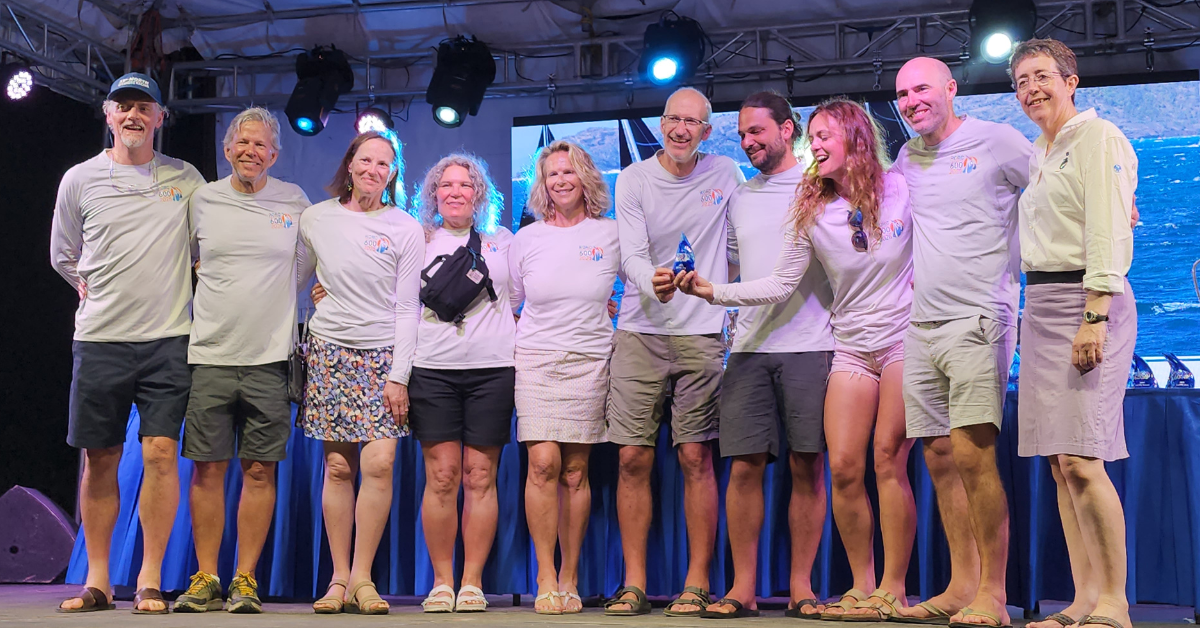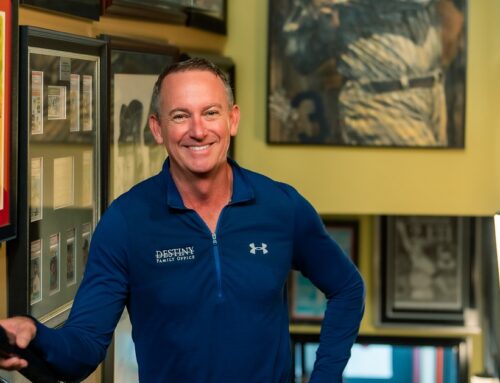Guest: Nikki Henderson, a world-class professional sailor. In 2018, Nikki became the youngest skipper to lead a team in the Clipper Round the World Yacht Race. At the age of 25, over the course of more than 40,000 miles of ocean racing, Nikki led a diverse team of mostly amateur sailors from 16 countries to an extraordinary second place finish. She’s also skippered numerous transatlantic races and won the Race to Alaska.
In a Nutshell: How do you define your job as a leader?
Nikki Henderson says that what she does as a skipper is pull together disparate individuals, build them into high-performing amateur teams, and then compete in the most extreme sailing races in the world.
I experienced Nikki’s leadership first hand a few weeks ago when I sailed with her in the Caribbean 600 as part of her amateur crew. This was a grueling 600-mile race around 11 Caribbean islands. Despite long odds, we ended up finishing third and celebrated on stage with our prize: a big bottle of rum.
On today’s show, Nikki Henderson and I discuss making life transitions, paradoxes and polarities in leadership, and decision-making under pressure and uncertainty.
Watch a Video of the Interview With Nikki Henderson
.
Nikki Henderson and I discuss:
- The mechanics and the emotions of preparation.
- How going on adventures teaches you to accept what’s out of your control, learn from being wrong, and be present in every moment.
- The roles that intuition, logic, filters, and authenticity play in leadership.
- How extensive drills and training prepared our amateur crew to manage an “overboard” situation during our race.
- Connecting our senses to nature.
Here’s What It Was Like Sailing in the Caribbean 600
Quotes:
Nikki Henderson on transitioning into and out of high-pressure situations:
“Going in, it’s really important to be able to be fully present. There’s so many unknowns when you go sailing and racing, and the list of things out of your control is never-ending. Just when you think you’ve kind of got one in control, there’s another three added to the bottom. You have to be so present in the moment. And so for me, preparation for something like that is about closing some of the doors, the half-open doors in my life, making sure I don’t have a lot of deadlines hanging over me or really anything that would pull me out of that world.
“And then, a couple of days before leaving, I typically end up in a huge argument with someone I love and start crying. I still have this sort of minor meltdown when I’m packing my bag — ‘Oh my gosh, my bag bag’s gonna be too big, I’m gonna take the wrong things, I’m gonna forget something’ — and on and on. And I think it’s my body or my brain’s way of purging weakness. I’m letting myself feel all the messy feelings that I can’t bring to the table once I’m on stage at work.”
Nikki Henderson on mastery:
“I tend to think, no, you can’t master anything. But then that could be the Britishness in me because we’re not the best for saying that we’re excellent at anything. I think that if you say to someone, ‘I’ve mastered sailing,’ you’ll probably be reminded shortly after of the fact that you have not mastered it. There is a humility that you need in work, in life, and you need to always hold onto it and always know that there is something that might come around the corner that you don’t expect or you don’t know. I suppose I am practicing sailing. I’m certainly also learning. Perhaps mastery is the top of the mountain that I’ll never get to. And I feel quite happy about that because that seems like quite a flat life, to reach the top.”
Nikki Henderson on showing up as a leader:
“ If you want to give people love and you want to forgive people when they make mistakes and allow imperfections, it doesn’t really sit that convincingly when you are berating yourself for the mistakes you’ve made. I struggle and will continue to struggle probably my whole life with that. What’s hard about sailing is there is no escape. There is no couch to sit on at the end of the day, there is no exit or privacy or partner to decompress with. I want to turn up as my whole self: my shadow self, my good self. On a boat, where there’s no escape, one day your crew will see you cry, or they will see you get irritated or be grumpy, or walk up on deck with a boogie on your face. They’ll see the real human. And that is so terrifying as a leader. It’s okay to say, ‘I love you and I’ll be nice to you, but I’ll also be firm.’ It’s a little harder to say, ‘I’ll be confident and powerful, and I’ll also be weak and like a little girl sometimes.’ And we all are of course. Creating scenarios or environments where we can accept one another as our whole selves, I think, is a real gift that I’m trying to create for myself as well as other people.”
. Resources Related to This Episode
- Nikki Henderson on Instagram and Substack
- 59º North Charter an adventure sailing experience with Nikki and her team.
- Andy Schell On What Life on The Ocean Can Teach Entrepreneurs About Preparation, Adaptation, and Leadership My conversation with the co-founder of 59º North
- Trust, Team, and Tea: Pete Goss on What His Epic Adventures at Sea Taught Him About Life and Business I talked to Pete about his life-or-death experience in the 1996/7 Vendee Globe, a non-stop, single-handed, unassisted around-the-world yacht race.





